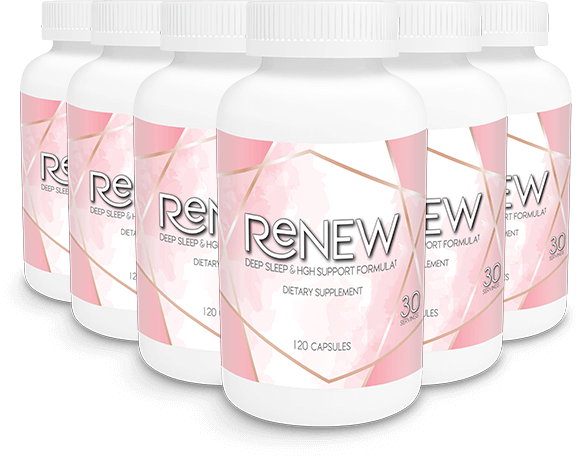9 Surprising ways, whey protein powder helps you get in shape!
This blog post may contain affiliate links. If we find a product or service to be useful, we encourage you to visit the website via that link. If you make a purchase through our referral link, we may receive a commission. Rest assured, you will not be charged any additional fees. By using these links, you can support us while making your purchase. For more information visit here.
Whey protein powder helps you get in shape!
You’ve probably seen ads before that promise to help you get in shape by adding whey protein powder to your diet regimen. This may seem like a reasonable idea at first. After all, many elite athletes tout the importance of taking protein supplements after workouts. If that’s good enough for them, it should also be good enough for you. Unfortunately, this isn’t always the case. If you want to know whether whey protein powder will really help you get in shape or if it’s just another gimmick, read this blog!
There are three main types of whey protein.
There are three main types of whey protein. The only difference between them is how they’re processed.
Whey Protein Concentrate: This contains approximately 70-80% protein. It is the most common type of whey protein and contains more lactose, fat, and minerals than milk.
Whey Protein Isolate: This contains 90% or more protein. It is more refined, contains less lactose and fat, and offers less beneficial minerals.
Whey Protein Hydrolyzate: This form is pre-digested, allowing your body to absorb it faster.
Whey protein is a favorite among athletes, fitness enthusiasts, and those looking to build muscle or lose weight.

What Is Whey Protein Powder?
Whey protein is the protein from whey, the watery part of milk that separates from the curd when making cheese. People commonly use it as a protein supplement. Whey protein can improve the nutrient content of the diet and also influence the immune system. It contains all the essential amino acids necessary for building muscle mass.
According to some studies, whey protein may help weight loss by increasing satiety (fullness) after eating. Yet, there’s scant evidence that supplementation with whey protein improves body composition or performance in healthy adults. On its own, whey protein isn’t necessarily effective at helping you lose weight. But if you incorporate it into your diet alongside exercise and other healthful habits, you might see some benefits.
How does whey protein powder compare to regular milk?
Milk contains casein in high quantities, and whey protein is a product derived from milk. They differ in digestion time. Our bodies digest casein slowly, so it is suitable before bedtime. In contrast, we digest whey quickly, which is ideal for workouts and muscle growth. Both contain different bioactive compounds that may boost your immune system and provide other benefits. But they’re not identical.
There are differences between these two proteins in nutrition content, side effects, and more. The most significant difference is how they affect blood sugar levels: whey protein powder has a shallow glycemic index (GI), which means it won’t spike blood sugar levels as much as casein does. It makes whey protein powder a better choice if you have diabetes or insulin resistance or want to lose weight by cutting down on carbs.
If you don’t have any of those conditions, then either type of milk will be acceptable. Milk is rich in calcium, potassium, and phosphorus, which help keep bones strong. It also contains vitamin D, an essential nutrient for bone health because it helps absorb calcium.
A glass of milk provides about 30% of your daily value (DV) for calcium, 25% DV for phosphorus, and 20% DV for potassium. Milk also contains B vitamins such as riboflavin, vitamin B12, and vitamin B6. These nutrients help convert food into energy so you can stay active throughout the day.
What is Optimum Nutrition, the gold standard whey protein?
With the help of Whey Protein powder and shakes from Optimum Nutrition, you can build muscle and improve recovery time. The company revitalizes energy and refocuses on products that support active lifestyles. It offers quality whey protein powder for men, women, and kids to help them reach their goals.
Many types of whey protein powder are on the market today, but bodybuilders have trusted only one brand for over 35 years: Optimal Nutrition Gold Standard 100% Whey Protein. With 23g of 100% Pure Whey Protein Isolate per serving, it’s easy to see why it’s America’s #1 Selling Brand of Bodybuilding Supplements. And now there are even more reasons to love it!
The latest innovation from ON is Gold Standard 100% Whey Protein. It combines fast-acting whey protein isolate and ultra-filtered whey protein concentrate in an exclusive process that preserves vital micro fractions. Optimum Nutrition has all you need to get there, whether you want earthy flavor or dramatic results.
These natural micro bits, such as lactoferrin, immunoglobulin, and glycopeptide, allow better digestion and assimilation. Glycomacaptide is a type of protein. You produce it while making cheese.
Are there any benefits to taking Whey Protein Powder?

Whey protein is among the best-studied supplements globally for a variety of reasons. It is an excellent source of high-quality protein that can help you maintain a healthy weight when consumed as part of a balanced diet. Yet, there are also some potential side effects to be aware of before taking whey protein powder.
If you’re thinking about trying it out, here’s what you need to know: (1) What is whey protein powder? (2) Benefits of taking whey protein powder (3) Side effects of taking whey protein powder (4) Are there any benefits to taking whey protein powder?
1. Whey protein promotes muscle growth!
If you’re looking to build muscle, whey protein powder is a helpful way to get more protein into your diet. A study published in the Nutrition Journal found that people who took a whey protein supplement for 12 weeks gained significantly more lean body mass than those who didn’t.
2. Whey protein may lower blood pressure!
A meta-analysis published in The American Journal of Clinical Nutrition found that people who took whey protein had significantly decreased systolic and diastolic blood pressures than those who didn’t. Besides, whey protein substantially reduces LDL cholesterol, total cholesterol, and triglycerides. It’s not clear exactly how whey protein powder lowers blood pressure, but researchers believe it might have something to do with its ability to increase nitric oxide production.
3. Whey protein may help treat type 2 diabetes!
A meta-analysis published in The American Journal of Clinical Nutrition found that people who took whey protein had significantly lower fasting blood glucose levels than those who didn’t. Another study published in Diabetes Care found that when people with type 2 diabetes supplemented their diets with whey protein powder for 12 weeks, they experienced significant improvements in fasting blood glucose levels and insulin sensitivity.
4. Whey protein may help reduce inflammation!
A meta-analysis published in the American Journal of Nutrition found that people who took whey protein had significantly slowed C-reactive protein levels than those who didn’t. C-reactive protein is a marker of systemic inflammation, and it has been linked to elevated levels in several chronic diseases, including heart disease and cancer. While whey protein powder won’t eliminate all sources of inflammation, it can certainly help.
5. Whey protein may enhance the body’s antioxidant defenses!
Antioxidants are substances that act against oxidation in the body. They reduce oxidative stress and lower the risk of various chronic diseases, including cancer, heart disease, and neurodegenerative diseases like Alzheimer’s. Many studies found that people who took whey protein had significantly higher levels of glutathione than those who didn’t. Glutathione is one of our bodies’ most powerful antioxidants, so it stands to reason that consuming whey protein powder would enhance its levels.
6. Whey protein is highly satiating (filler), which may help reduce appetite!
Satiety is a term used to describe the fullness we experience after eating a meal. It’s one of several factors determining how much food we eat at each meal and how many calories we consume. Research has confirmed that people who took whey protein had significantly higher levels of peptide YY than those who didn’t. But, not all proteins have the same effect on satiety, while whey protein appears to be more satiating than other types of protein, such as casein and soy.
7. Whey protein can help you lose weight!
We know that increased consumption of protein is a well-known weight loss strategy. Thus, adding whey protein powder to your diet could be beneficial if you’re trying to lose weight. A meta-analysis published in The American Journal of Clinical Nutrition found that people who took whey protein had significantly fewer body weights than those who didn’t. People who supplemented their diets with whey protein shed an average of 2 pounds more than those who didn’t supplement their diets with whey!
8. Easy to digest!
You can easily digest whey protein as it has a high absorption rate. The amino acids in whey are quickly absorbed into your bloodstream, so you’ll start experiencing their benefits sooner. This makes whey protein an excellent choice for post-workout recovery and if you have trouble with lactose intolerance or milk allergies.
The substance is rich in branched-chain amino acids (BCAAs): leucine, isoleucine, and valine.
9. Prevents muscle wasting!
People who suffer from muscle-wasting diseases can benefit from whey protein. Whey protein isolate can also be effective for seniors and people losing muscle mass because of natural aging. Whey protein is a complete source of protein: Complete proteins contain all nine essential amino acids, which your body needs but can’t produce on its own.
Who should consider taking a Whey Protein supplement?
People commonly use whey as a supplement and resistance exercise to help improve muscle protein synthesis and promote lean muscle growth. It’s trendy among athletes who are trying to increase their strength or build more muscle mass. But does it work? And if so, who should consider taking it? To find out, we asked some fitness experts for their take on whey protein supplements.
Here’s what they had to say: Whey protein is one of two major proteins found in milk (the other being casein). The separation process of these proteins from milk yields two forms of whey—whey concentrate and whey isolate. Both types contain essential amino acids, but isolates are purer than concentrates because they undergo less manufacturing.
A. The amount of protein you get each day varies depending on age, gender, health, and activity level.
- People who are more likely to struggle to get enough protein through food alone,
- Including competitive athletes, older adults,
- And people recovering from surgery or illness can benefit from a whey supplement. (or another high-quality protein supplement).
Even if you’re not one of these groups, it’s imperative to note that there is no single right type of protein for everyone, including whey. As with any other supplement, it’s wise to consider your personal needs and goals before deciding whether a whey supplement is right for you.
B. If muscle gain is your goal, that’s how much protein you should consume daily.
So we know how much protein most people need, but you might not be most people. So the optimum amount of protein for you depends on your weight and activity level. If muscle gain is your goal, that’s how much protein you should consume per day:
- 0.8 grams per kilogram of body weight if you’re sedentary (not exercising regularly),
- 1 gram per kilogram if you’re moderately active (exercising a few times a week),
- 1.2 grams per kilogram if you exercise regularly (work out almost daily).
1 kilogram = Approx 2.20 pounds
For example, if you weigh 150 pounds and are moderately active, that means about 75 to 100 grams of protein per day. If you are 200 pounds and are very busy, consume about 100 to 125 grams of protein per day. And if you weigh 300 pounds and are sedentary, it comes to about 50 to 60 grams of protein daily.
But these numbers aren’t set in stone. If you want to consume more or less than the recommended amounts above, you may do so! But make sure your diet still contains enough calories from other macronutrients (fat and carbs) so you don’t lose weight or get malnourished.
The hidden dangers of protein powders!
Can I have any unique concerns about taking a Whey protein supplement? Yes, you can have unique concerns about taking a Whey Protein supplement because protein powders may also have hidden dangers!
They may contain added sugar, calories, or even toxic chemicals. For example, a 2012 Food and Chemical Toxicology study found that many protein powders had arsenic and lead. The authors concluded that the consumption of these products is not without health risks for consumers. Besides safety concerns, there are questions about whether whey protein supplements are effective for building muscle mass and burning fat.
1. It may cause digestive issues!
The majority of the side effects of whey protein are associated with digestion. Some people have problems digesting whey protein and experience symptoms such as bloating, gas, abdominal cramps, and diarrhea. This is because it contains lactose (milk sugar), which is difficult for some people to digest. If you notice any digestive issues after taking a whey protein supplement, try switching brands or consuming it with food. Also, note that these supplements can cause an allergic reaction in some individuals.
2. Some people may be allergic to whey protein!
Because whey protein comes from cow’s milk, people allergic to cow’s milk may be sensitive to it. Symptoms of an allergy include a tingling sensation on your tongue and lips, hives, and swelling of your throat or tongue. If you are allergic to cow’s milk, talk with your doctor before consuming a whey protein supplement.
3. It can damage your kidneys!
Eating a high-protein meal can raise the pressure inside the kidneys and cause them to filter more blood than usual. This can lead to acute kidney injury. In addition, if you have chronic kidney disease, overeating protein may worsen it. To be safe, limit your intake of protein supplements to only one serving per day. If you have concerns about whether whey protein is safe for you, talk with your doctor before taking it.
4. Can drinking whey protein without exercise be harmful?
Whey is a natural byproduct of cow’s milk and, in powder form, is one of the most popular fitness supplements available. There’s nothing inherently risky about whey protein. Yet, following a diet that’s very high in protein over a long period carries risks, especially if you’re not trying to build muscle. Using whey as part of your exercise routine can help build muscles and reduce fat—but only when combined with other exercises.
If you aren’t exercising at all, it can also cause health problems. It’s easy to consume too much protein without working out, putting extra stress on your kidneys. Despite this, it doesn’t mean you should avoid whey protein altogether. Just make sure you get enough exercise along with it. Otherwise, there are plenty of healthier ways to increase your protein intake with no risk!
Side effects of whey protein powder
There can be some side effects associated with whey protein powder, so you should watch them carefully.
1. Kidney problems
Studies have suggested that taking whey protein powder might strain your kidneys, especially if you have a pre-existing kidney condition. It’s worth noting that there is no scientific evidence to support these claims, but it’s still something to be aware of.
2. Gastrointestinal issues
While most people tolerate whey protein powder well, it’s not uncommon to experience gastrointestinal side effects, such as bloating and gas. If you are experiencing any of these symptoms, try reducing your intake or switching to a different type of protein powder.
3. Liver Problems
According to a study, whey protein powder may increase your risk of developing non-alcoholic fatty liver disease. Again, there is no scientific evidence to support these claims, but it’s something you should know if you choose to use whey protein powder.
4. Heart diseases
Some studies have suggested that taking whey protein powder may increase your risk of developing heart disease. However, it’s critical to note that scientists conducted these studies on people who already had existing heart conditions. The jury is still out on whether whey protein powder actually causes heart disease or not.
5. Increased blood acidity
The amino acids found in whey protein powder can increase your body’s edge, which may cause you to feel fatigued. If you experience these symptoms, try reducing your intake or switching to a different type of protein powder.
6. Ketosis
Professionals have suggested that taking whey protein powder may risk developing ketosis, a condition where your body produces high ketones. It would be helpful to note that no scientific evidence supports these claims.
7. Osteoporosis
Taking whey protein powder may increase your risk of osteoporosis, according to research. Yet, it’s imperative to note that these results were based on a small sample size, and they still need more research to draw any conclusions.
8. Gout
Many people who have gout have experienced increased pain while taking whey protein powder. Avoiding whey protein powder is advisable if you are currently dealing with gout.

Should you mix your protein powder with milk or water?
According to experts, the difference between a protein shake mixed with water or milk lies in your preference and the fitness goal you intend to achieve. Whether you want a bulked-up body, gain muscle, or want to lose weight, flab, and build lean muscle mass, it’s helpful to remember that there is no one right option for choosing how you mix your protein powder. It’s all about finding what works best for you.
Whey protein powder – the last opinion!
Now, it is possible to get in shape without working out! And there are many benefits to using protein powders. This is because they can be a convenient way to boost your protein intake, particularly for women who have difficulty meeting their protein needs from food alone. The great thing about protein powders is that they’re available in many flavors, so it’s easy to pick the right one!
Whether you’re busy with work or family obligations or have limited time, these formulas allow you to get the benefits of a healthy diet in just 15 minutes. Since these powdered protein supplements contain 77% protein and calories per serving, they can help you reach your goals more quickly than ever before.
For women, whey protein powder is one of the most popular options, with benefits ranging from weight loss and muscle repair to improved mood and endurance. For building and maintaining muscle, protein plays a crucial role. Women, in particular, need more protein than men to keep fit. So while buying, check the label for essential amino acids such as leucine and glutamine to benefit your protein powder choice most. These amino acids are present in all whey protein powders.
There is no specific whey powder that will work for everyone. It is helpful to understand how much protein you should consume daily, depending on your activity level, weight, and goals. The optimum advice is to consume around 20-30 grams of protein per meal or snack throughout the day. It’s even better if you do it naturally.
Understanding the importance of copyright law is absolutely vital, as it strictly prohibits any reproduction or replication of works without the explicit permission of the author. Any unauthorized duplication of content will lead to legal action for copyright infringement under Section 14 of the Copyright Act.











